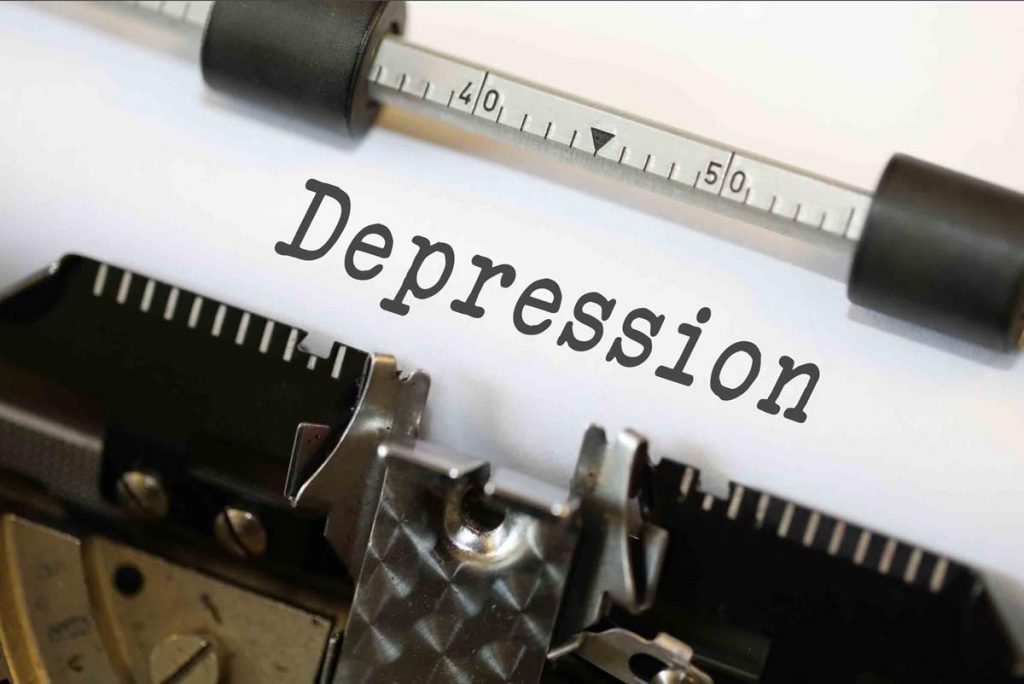In today’s fast-paced work environment, feeling a buzz of anxiety is almost a given. But when this buzz turns into a constant hum, it’s a sign that you need to address your work anxiety.
You’re not alone in this battle. Millions around the globe find themselves grappling with the pressures and stresses of their professional lives. However, the good news is that managing anxiety at work is not just possible; it’s a journey that can lead to profound personal and professional growth.
In this comprehensive guide, we’ll explore actionable strategies to help you navigate through the choppy waters of work anxiety disorder. From understanding its roots to implementing practical tips and making lifestyle adjustments, we’ll cover all you need to know to transform your work experience into a more positive and productive one.

Source: pexels.com
Understanding Work Anxiety
Work anxiety is more than just the occasional stress of a looming deadline or a challenging project. It’s a persistent feeling of nervousness, worry, or unease about your job security. Here are some common work anxiety symptoms:
- Excessive Worrying: Constantly feeling anxious about work-related matters, even when not at work or during off-hours.
- Difficulty Concentrating: Finding it hard to focus on tasks due to intrusive anxious thoughts or a preoccupied mind.
- Restlessness: Feeling unable to relax, both physically and mentally, often leading to a sense of being on edge.
- Irritability or Mood Swings: Experiencing sudden changes in mood, often feeling irritable or frustrated with minor triggers.
- Fatigue: Persistent tiredness or exhaustion that isn’t alleviated by rest, often due to the mental strain of anxiety.
- Sleep Disturbances: Trouble falling asleep or staying asleep, experiences anxiety and restless nights or insomnia linked to work-related stress.
- Physical Symptoms: Including headaches, muscle tension, stomach issues, or other stress-related physical reactions.
- Avoidance Behavior: Procrastinating or avoiding work tasks, meetings, or interactions with colleagues due to anxiety.
- Decreased Job Performance: A noticeable drop in work quality or productivity, often as a result of the above symptoms.
- Feelings of Inadequacy: Persistent self-doubt or feelings of incompetence, regardless of actual performance or achievements.
- Social Withdrawal: Pulling away from colleagues or work-related social events, often due to feelings of anxiety or feeling overwhelmed.
- Panic Attacks: In severe cases, experiencing sudden and intense episodes of fear or panic, sometimes triggered by specific work situations.
It’s important to note that experiencing some of these symptoms occasionally may not necessarily indicate a serious problem. However, if these symptoms are persistent, significantly impact your daily life, or cause distress, it may be indicative of work-related anxiety that could benefit from professional attention or changes in your work habits and environment.

Source: pexels.com
Causes of Work Anxiety
The roots of work anxiety often lie in a combination of external and internal factors. Externally, a toxic work environment, unrealistic new job demands, or unclear expectations can fuel anxiety.
Internally, personal stressors or a mindset that leans towards perfectionism or fear of failure can exacerbate the situation. Understanding these causes is crucial in developing effective strategies to combat work anxiety disorders.
Practical Tips to Effectively Manage Work Anxiety
Organizational Strategies
Organizational strategies involve structuring your work and environment in a way that reduces stress levels and increases efficiency. Here’s a breakdown of some effective organizational strategies, along with examples:
Time Management And Coping Techniques
- Pomodoro Technique: This involves breaking your workday into 25-minute chunks of focused work followed by a 5-minute break. After four “Pomodoros,” take a longer break. This helps maintain high levels of focus while preventing burnout.
- Eisenhower Box: This method helps prioritize tasks by dividing them into four categories: urgent and important, important but not urgent, urgent but not important, and neither urgent nor important. This helps in focusing on what truly matters.
Prioritizing Tasks
- To-Do Lists: Start each day with a clear to do list of tasks to be accomplished. Prioritize them based on urgency and importance.
- ABC Method: Rank tasks from A (most important) to C (least important) to focus your energy on the most impactful activities.
Setting Realistic Goals
- SMART Goals: Set goals that are Specific, Measurable, Achievable, Relevant, and Time-bound. This ensures that your objectives are clear and attainable.
- Breaking Down Large Projects: Divide larger projects into smaller, manageable chunks of tasks. This prevents feeling overwhelmed and helps track progress.
Creating a Structured Work Environment
- Dedicated Workspace: Have a designated area for work, especially if working from home. This helps in mentally separating work from personal life.
- Minimizing Distractions: Keep your workspace organized and minimize distractions (like turning off unnecessary notifications).
Effective Communication
- Clear Communication with Team Members: Regularly update and discuss progress with your team. This helps in managing expectations and reduces misunderstandings.
- Asking for Help When Needed: Don’t hesitate to delegate tasks or ask for assistance when overwhelmed.
Regular Review and Adjustment
- Weekly Reviews: At the end of each week, review what was accomplished and what wasn’t. Adjust your strategies and plans accordingly.
- Flexibility: Be open to adjusting your methods and strategies as your work demands and personal efficiency evolve.
Use of Technology and Tools
- Project Management Tools: Utilize tools like Trello, Asana, or Monday.com to organize tasks and collaborate with team members.
- Calendar Apps: Use digital calendars for scheduling and reminders to keep track of realistic deadlines, upcoming deadlines, and meetings.
Implementing these organizational strategies can significantly reduce work anxiety by bringing a sense of control and order to your work life. Remember, it’s about finding what works best for you and adapting these strategies to fit your specific needs and work style.

Source: pexel.com
Lifestyle Tweaks for Lasting Peace of Mind
To overcome anxiety, tweaking our daily habits can really be a game-changer when it comes to shaking off that toxic workplace culture. It’s all about striking that sweet spot between our job and personal life, while also keeping our body and mind in tip-top shape.
Finding That Perfect Work-Life Harmony
Let’s talk about nailing that perfect work-life balance. It’s like the secret sauce for keeping work anxiety at bay and boosting our overall happiness. By finding this balance, we’re not just dodging burnout; we’re making sure we’re firing on all cylinders both in the office and at home.
- Setting Boundaries: Establish clear boundaries between work and personal time to manage anxiety. This might include specific working hours and a commitment to not checking work emails or taking calls during personal time.
- Dedicated Downtime: Ensure you have downtime that is free from work-related activities. Engage in hobbies, spend time with family member and a close friend or friends, or simply relax.
- Unplugging: Make a conscious effort to disconnect from work, especially during vacations or weekends. This helps your mind and body to recharge.
The Power of Staying Physically Fit Against Work Stress
If you feel anxious, keeping yourself physically fit is the key because it’s like having a superpower against work stress. When our body is feeling great, our mind follows suit. It’s like building a stress-resistant shield, making us way tougher when those work pressures start piling up.
- Regular Exercise: Incorporate physical activity into your routine. Exercise releases endorphins, which reduce stress and improve mood. You can try brisk walking, yoga, cycling, or any form of exercise that you enjoy at the present moment.
- Balanced Diet: Eating a well-balanced diet is key to maintaining energy levels and mood stability. Include plenty of fruits, vegetables, lean proteins, and whole grains. Limit intake of caffeine and sugar, which can exacerbate anxiety symptoms.
- Adequate Sleep: Ensure you get enough quality sleep. Sleep is crucial for cognitive function and managing stress. Create a relaxing bedtime routine to copre with stress. In addition, try to maintain a consistent sleep schedule.
Mental Health and Relaxation
Taking care of your mental health is just as important as physical health in dealing and managing work anxiety.
- Mindfulness and Meditation: Practices like mindfulness and meditation can help calm your mind and reduce anxiety. Use apps or guided sessions to help you get started.
- Stress-Relief Activities: Engage in activities that help you relax and de-stress. You can try reading, painting, gardening, or any other activity that brings you joy and relaxation.
- Social Connections: Maintain a healthy social life. Social interactions can provide support and reduce feelings of isolation.
Professional Development and Personal Growth
Continuously working on your professional skills and personal growth can also help manage work anxiety by boosting confidence and competence.
- Continuous Learning: Invest in learning new skills or enhancing existing ones. This can increase job satisfaction and reduce anxiety related to job performance.
- Personal Development: Engage in activities that promote personal growth, such as reading self-help books, attending workshops, or practicing self-reflection.
By incorporating these lifestyle adjustments, you can create a more balanced life, reduce work anxiety, and improve your overall well-being. Remember, these changes don’t happen overnight. It’s about making small, consistent efforts that add up to significant long-term benefits.
When to Seek Professional Help
There comes a point when self-help strategies might not be enough, and that’s okay. Recognizing when it’s time to seek mental health professional help is a sign of strength, not weakness. If work anxiety is significantly impacting your quality of life, causing you to miss work, or leading to depression, it’s time to talk to a health professional. Therapists, counselors, and psychologists are trained to help you navigate these challenges.
Wrapping Up
As we wrap up this guide, remember that managing work anxiety is a journey, not a destination. Since work-related stuff can feel overwhelming, the strategies and tips we’ve discussed are tools to help you along the way. It’s about making small, consistent changes that lead to a more balanced and fulfilling work life. So, take that first step, whether it’s trying a new relaxation technique, setting boundaries for work-life balance, or seeking professional support or a consultant psychiatrist. Your journey to a less anxious work life starts now.
Frequently Asked Questions (FAQ)
How Do You Manage Work Based Anxiety?
How Can I Reduce Stress And Anxiety At Work?
How Do You Manage Performance Anxiety At Work?
How Do I Stop Worrying About Work?
Why Is My Job Causing Me So Much Anxiety?
How Do You Manage Workplace Anxiety And Stress In 5 Simple Steps?
What If I Can’t Work Because Of Anxiety?
Can People With Anxiety Work?
Why Am I Struggling At Work?
Should I Go To Work If I Have Anxiety?
How do I relax after a stressful day at work?










